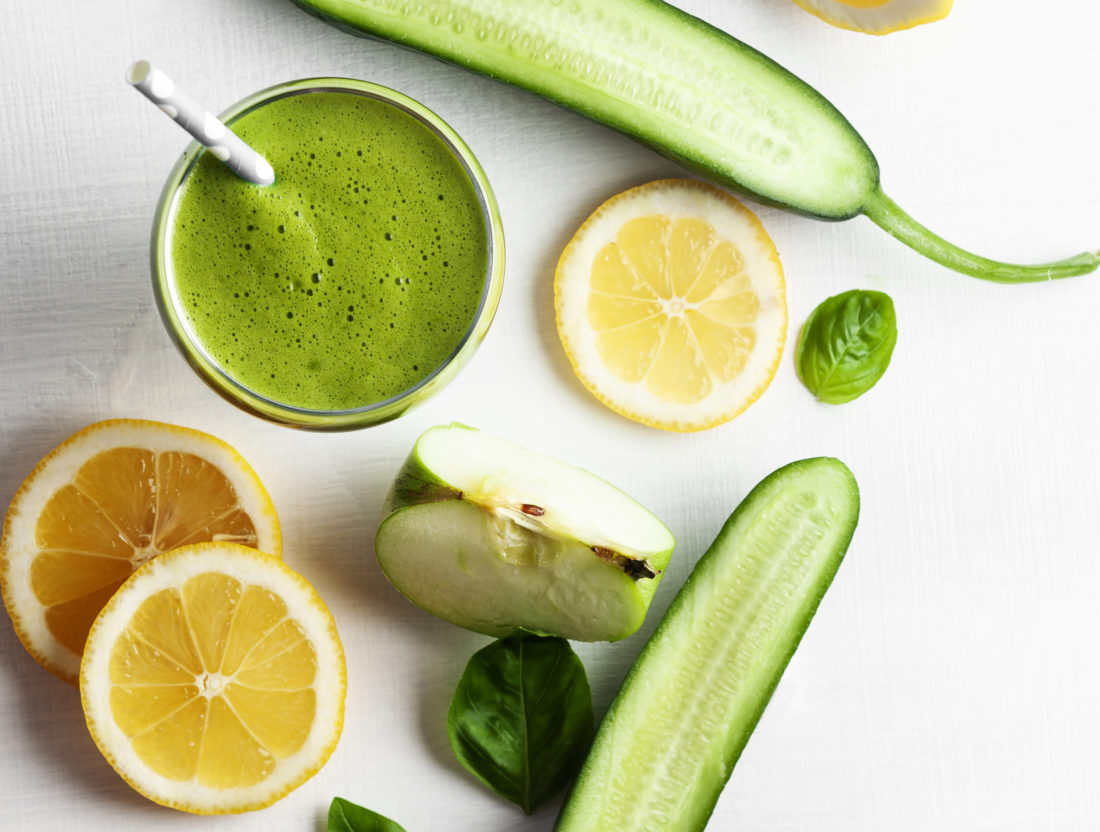Juice has come a long way. American consumers by the millions once mixed frozen concentrate with water to make their morning orange juice, while busy parents doled out small rectangular juice boxes impaled by a slim white straw.
These days, though, juice is an increasingly artisanal product. Shredded fresh fruits and vegetables — often in sophisticated blends that include ingredients like ginger and turmeric — are “cold-pressed” by hydraulic equipment that rings out every drop of moisture, leaving behind a dry pulpy substance.
Proponents say the cold-pressing method preserves the maximum amount of natural enzymes and other healthful substances in the produce, while older methods involving centrifugal force or grinding generate heat that subtly alters the finished product.
According to the Global Wellness Institute, cold-pressed juices make up 14% of the massive wellness nutrition market, which represented over $700 billion in international sales in 2017. The popularity of the drinks has exploded since 2004, growing 58% over that period.
While plenty of people consume cold-pressed juice as a snack or meal replacement, others take the idea further, replacing all food with juice for a period of time in an effort to detoxify the body and promote healing. Xpress asked a number of local experts for their thoughts on the juice cleanse trend. Are periodic cleanses a miracle cure for ailments from inflammation to depression, or are they another expensive fad that needs to disappear?
Give it some juice
Elements Real Food is riding the wave of interest in raw and organic food and juice. Owners Zack and Jenni Bier started their business out of a food truck in 2013; by 2015, they were ready to open a brick-and-mortar cafe on South Liberty Street just north of downtown Asheville.

The cafe offers three different juice packages, any of which can be used for one-, three- or five-day cleanses. Ranging from $58-$62 per day, the choices include juices with raw foods, juices with nut milks and a vegetable-heavy Just Greens version with only small amounts of fruit and ginger mixed in.
Zack Bier notes some of the positive results his juicers have shared, which include “increased energy levels, clearer skin, weight loss, improved digestion and mental clarity.” Not surprisingly, he’s a fan: “Overall, juicing is a wonderful addition to a healthy diet for regular maintenance and self-care.”
At the same time, Bier adds, “Participating in a cleanse is not for everyone. If you are not sure, talking to your health care provider is a good idea before starting a cleanse.”
A matter of choice
Nicole DiDio Johnson, a local integrative holistic health coach, says she values Elements because of its use of all-organic vegetables and fruits. While there’s no one approach that’s right for everyone, she says, “We’ve seen it really comes down to each individual, the time of year/climate, stage of life, health history and health goals.” For those looking for weight loss, help changing poor eating habits, energy and access to raw vitamins and live enzymes, she says, “Juicing is an excellent choice.”
Her husband, acupuncturist Chad Johnson, recalls a time one of Nicole’s juices helped him kick the flu. “It tasted like I was drinking liquid sun and was the turning point in my recovery,” he says.
Chad cites a small study conducted by the Center for Human Nutrition in the department of medicine at the University of California Los Angeles. That research suggested that juicing can help alter the human microbiome in ways that are associated with weight loss, decreased arterial constriction and reduced cell damage.
Since Chad’s approach to health is influenced by East Asian medical theory, he recommends that those embarking on a juice cleanse also drink warm bone broth and warm ginger and honey tea.
Taking a break
Marshall’s Prama Institute offers three- and five-day juice cleanse experiences that incorporate yoga, meditation and nutrition workshops. Ramesh Bjonnes, Prama’s director, credits juice fasting with healing his own chronic illness. Inspired by that life-changing experience, he studied at Ananda Marga Yoga Wellness Center in the Philippines before founding Prama Institute.
“The main benefit of a juice cleanse is that it allows the body’s cellular structure to receive high amounts of nutrient-dense micronutrients in the form of vitamins, antioxidants, flavonoids, minerals, phytonutrients, etc.,” Bjonnes says. At the same time that the body is receiving high levels of nutrition, he continues, the body gets a break from the hard work of digesting solid substances.
To ensure Prama’s guests receive care that addresses the full scope of their individual needs, Bjonnes adds, the center collaborates with doctors, nurses and addiction counselors.
On the other hand
Some practitioners, however, express reservations about the practice of juice cleanses.
Dietitian Kyle Maiorana of Root Down Nutrition and the Funk’tional Nutrition Podcast says she doesn’t typically recommend juice cleanses because many of her clients are experiencing health issues that need to be addressed before a cleanse would be a good idea. And, she adds, “No amount of juice cleanses or supplements can make up for an unhealthy lifestyle.”
Before considering a cleanse or other intervention, Maiorana urges people to “look at your exposure to toxins from our environment, the personal care and household products we use, the water we drink and our lifestyle habits such as sleep, movement and stress management.”
Dietitian Denise Barratt of Vine Ripe Nutrition emphasizes eating whole foods over juices. “I do not encourage them to do it and feel that there is a lot of wasted nutrition left over after juicing that provides a synergy to our body,” she says. “A salad or a blended smoothie would be more of a whole food with more fiber and nutrients and will provide greater satiety because eating is always more satisfying than drinking.”
Traci Malone of TraciMaloneNutrition.com works with people with medical conditions including diabetes, eating disorders, heart disease and liver disease, along with those who simply want to improve their overall health and wellness. She advises all her clients to steer clear of cleanses. “There’s a lot of money to be made in this market, and makers of juice cleansing products never provide any real science-based rationale for their products,” she says. “I see this lack of evidence and profit-driven marketing to be big red flags.”
Moderation in all things
Elizabeth Pavka is a registered dietitian who practices as a holistic nutritionist and wellness consultant. She says about 5% of her patients ask about juice cleanses. “Overall, I think that juice cleanses can be very healthy if done properly,” she says. “The body does store protein in various tissues. So a two- or three-day juice cleanse can be very helpful and won’t significantly reduce the body’s amount of protein.”
Kirsten Petersen, a chiropractic physician with Align Asheville, says her recommendations vary depending on the results of a thorough assessment, including blood work, which she performs before recommending any diet.
In some cases, people “may really thrive on the high amount of vitamins and minerals in fresh pressed or blended juices,” Petersen says. But juice contains a large amount of sugar, which can cause blood sugar levels to spike and then plummet. “In my functional medicine practice, I emphasize the importance of blood sugar stability, as research shows that strong fluctuations in blood sugar can pose health risks over time,” she explains.
Petersen says she’s a proponent of therapeutic and intermittent fasting for patients with certain conditions, but in general, she focuses on helping patients “craft a sustainable way of eating for long-term health.”




Before you comment
The comments section is here to provide a platform for civil dialogue on the issues we face together as a local community. Xpress is committed to offering this platform for all voices, but when the tone of the discussion gets nasty or strays off topic, we believe many people choose not to participate. Xpress editors are determined to moderate comments to ensure a constructive interchange is maintained. All comments judged not to be in keeping with the spirit of civil discourse will be removed and repeat violators will be banned. See here for our terms of service. Thank you for being part of this effort to promote respectful discussion.